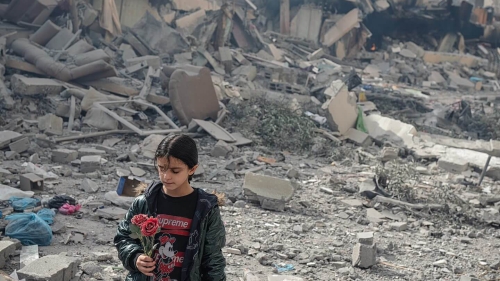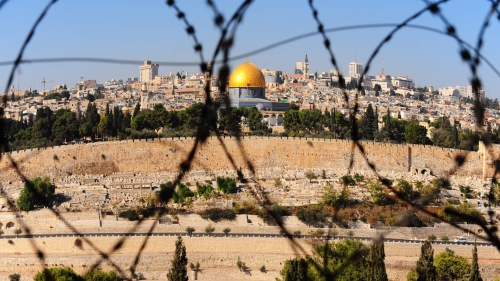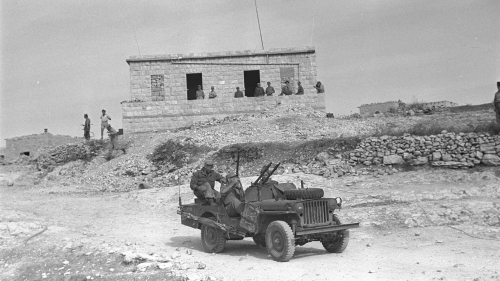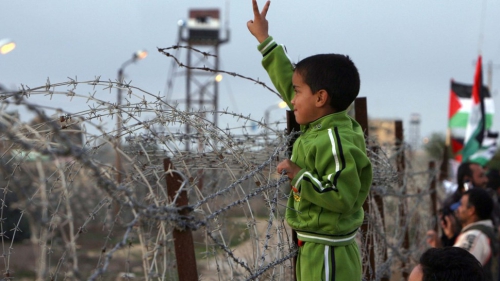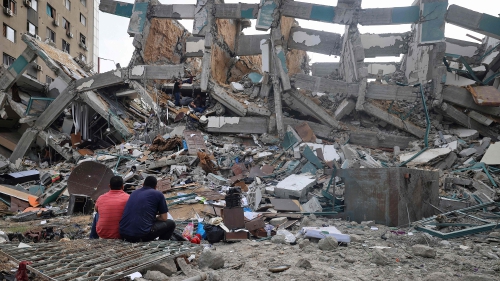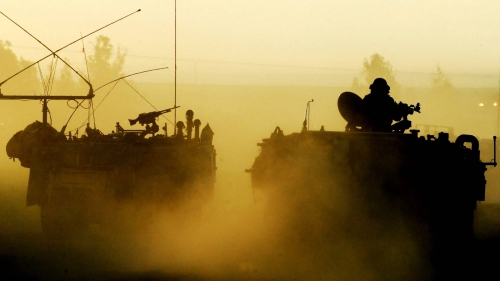Israel's Right-Wing Government Spins To Win the Propaganda War
JERUSALEM, July 26 (AFP) - Up-to-the-minute news delivered wherever you are via pager. Top government officials appearing before you live and in person, explaining the ins and outs of the latest political developments.
Another high-tech communications fantasy of the future? Hardly.
| _______
"The Israeli point of view is definitely handed to you on a platter," says one US radio journalist. "They have a very effective PR mechanism. It gives you no excuse not to quote them in your stories." ________ |
Welcome to the propaganda machine of the Israeli government, a media-savvy, journalist-friendly juggernaut that spoon-feeds and spins the official line around the clock.
With Israel battling what it sees as an international bias towards the Palestinians in their conflict with the Jewish state, the government of Prime Minister Ariel Sharon has taken a highly active approach to the news.
Sharon press aides call foreign journalists almost every day, offering up ministers and advisers for quotable comment the way waiters present a restaurant's selection of daily specials.
When there's a major story, government officials "work the building" -- trawling the floors of the Jerusalem centre that is home to most news agencies and TV networks, giving each a few minutes of "exclusive" interviews.
"The Israeli point of view is definitely handed to you on a platter," says one US radio journalist. "They have a very effective PR mechanism. It gives you no excuse not to quote them in your stories."
In a plugged-in world of 24-hour news, where spin is often at least as important as substance, easy access to Israeli officials guarantees the Jewish state's side of things always gets heard by reporters.
"The propaganda war is in many ways the most important part of this conflict," says political analyst Gerald Steinberg from Tel Aviv's Bar-Ilan University.
The Palestinians for their part are trying to keep up, and indeed are offering an access to officials that is unprecedented in the Arab or Islamic world.
Unlike in places such as Egypt or Iran, where a phone interview with a government official can mean faxing a request and waiting for days -- and often never succeeding -- the Palestinians have now created their own media centre.
But they have several crucial disadvantages in dealing with the international media.
Far fewer of their spokesmen and officials speak English, and for most of them it is politically complicated if not impossible to get into west Jerusalem, where most journalists are located.
Meanwhile, as one handout of contacts from the Israeli press office declares, "Ministers are available 24 hours a day to explain the position of the Israeli government."
The result is that the Sharon government's take on events -- calling the targeted killing of Palestinians in Palestinian territory "self-defence," for example -- is always close at hand to reporters.
One new development is that the right-wing Sharon has departed dramatically from the approach of his Labour predecessor Ehud Barak, whose government largely kept its distance from the foreign press.
Barak's ambitious focus on concluding peace deals with Israel's Arab neighbours left little time or desire to expend extra energy on burnishing the government's image with the press corps.
But the hardline Sharon -- reviled in the Arab world and unwilling to offer the Palestinians the concessions that Barak put on the negotiating table -- knows he has a tougher "sell" to the press.
Pagers relay official government and army statements to journalists round-the-clock, while spokesmen never hesitate to call and offer their interpretation of the latest events -- often just moments after they happen.
"We focus very much on how things are portrayed in the media," says Sharon spokesman Raanan Gissin.
"The press has become part of policy. And one of the pillars of our policy is to make sure that Israel gets an audience, and gets a hearing, in the international community," Gissin says.
"Often the critical issue is not how to win on the ground, but how to win the hearts and minds of people both here and abroad -- among our friends and our foes."






